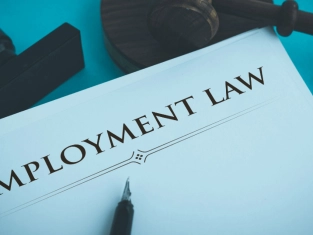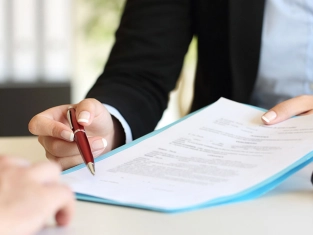by PushtoLearn
Unit 10 - Real property law
Table of Contents
Unit 10, International Legal English Exercises and Flashcards
These exercises focus on Unit 10, International Legal English
Wordlist for Unit 10, International Legal English
|
Word |
Definition |
Example |
|
real property |
Land and anything permanently attached to it, including buildings and natural resources |
The real property includes land and any permanent structures built on it, such as houses, factories, and buildings |
|
personal property |
Moveable possessions that are not permanently attached to land, such as furniture or vehicles |
Personal property consists of movable assets, such as vehicles, furniture, and electronics, that individuals own |
|
tenements |
Land or buildings that are subject to ownership or tenancy |
The tenements in the urban area are being renovated to provide affordable housing options for city residents |
|
hereditaments |
Items or property that can be inherited, often referring to real property |
The hereditaments of the deceased were distributed among the heirs according to the terms of the will |
|
freehold estates |
Ownership of land with no time limit, such as fee simple and fee tail estates |
Freehold estates grant the property owner full ownership rights, which can be passed down through generations |
|
leaseholds |
A property interest granted to a tenant by a lease agreement for a specified period |
The leaseholds of commercial spaces are subject to periodic rental payments outlined in the lease agreement |
|
fee simple |
The highest form of land ownership where the owner has complete and absolute control |
Owning a fee simple estate means having complete ownership of the property, including both the land and buildings |
|
fee tail |
A type of land ownership that limits inheritance to specified heirs |
The fee tail in the will specified that the family estate could only be inherited by the eldest male descendant |
|
life estate |
Ownership interest in a property that lasts for the lifetime of a specific person (life tenant) |
The life estate allowed the widow to reside in the family home for her lifetime, after which it would pass to her children |
|
pur autre vie |
A life estate that lasts for the life of someone other than the life tenant |
The property was left to a friend for the duration of another friend's life (pur autre vie) as stated in the will |
|
inheritance |
The transfer of property or assets from one person to another upon the former's death |
Inheritance laws dictate how assets are distributed among heirs when someone passes away without a will |
|
escheat |
The legal process through which property reverts to the state when there is no valid heir |
In the absence of legal heirs, the property reverted to the state through the process of escheat |
|
grantee |
The recipient or buyer of property, typically through a deed or transfer document |
The grantee of the property deed is responsible for paying property taxes and maintaining the land |
|
life tenant |
The individual who holds a life estate and has the right to possess and use the property during their lifetime |
The life tenant is entitled to occupy the estate for their lifetime, and after their passing, it passes to the remaindermen |
|
remaindermen |
Individuals or entities who will inherit or possess a property after the death of the life tenant |
The remaindermen eagerly awaited their turn to take possession of the estate once the life tenant passed away |
|
take possession |
The act of physically occupying and using a property or land |
After the completion of the purchase agreement, the new homeowners can take possession of the property |
|
lease |
A legal agreement granting temporary possession and use of property in exchange for rent |
The lease agreement specifies the terms and conditions under which the tenant can occupy the rented apartment |
|
rent |
Payment made by a tenant to a landlord in exchange for the use of a property |
The monthly rent for the commercial space is due on the first of each month, payable to the landlord |
|
term of years |
The specified duration for which a property is leased, often expressed in months or years |
The term of years lease provides the tenant with exclusive rights to the property for a predetermined period |
|
exclusive possession |
The right of a tenant to have exclusive use and control of a leased property during the lease term |
The lease grants exclusive possession of the office space to the tenant, ensuring no other party can access it |
|
easements |
Legal rights that allow one party to use another's land for a specific purpose, such as access or utilities |
The property owner granted easements to the utility companies, allowing them access to maintain their infrastructure |
|
usufruct |
A legal right to use and derive income or benefits from someone else's property without owning it |
Under the usufruct agreement, the tenant was entitled to use and enjoy the agricultural land for ten years |
|
mortgage |
Loans secured by real property, where the property serves as collateral for repayment of the loan |
The homeowners secured a mortgage to finance the purchase of their new house, making monthly mortgage payments |
|
financing measures |
Actions or strategies used to secure funding or financial resources for property purchases or investments |
The government introduced financing measures to encourage small businesses by offering low-interest loans |
|
heir |
A person who inherits property or assets from a deceased individual based on legal succession |
The deceased's only heir inherited the entire estate, as outlined in the will |
|
landlord |
The property owner who leases or rents property to a tenant in exchange for rent payments |
The landlord is responsible for maintaining the rental property and addressing any issues raised by the tenant |
|
tenant |
An individual or entity who rents or leases property from a landlord for a specific period |
The tenant signed a lease agreement with the landlord to rent a commercial space for their new business |
|
easement by necessity |
An easement granted by the court due to the essential need for access to a property |
The easement by necessity allowed the landlocked property owner to access their land through a neighboring property |
|
non-competition |
A legal agreement or clause prohibiting an individual from engaging in competitive activities with a particular party |
The non-competition clause in the employment contract prevented the former employee from working for a competitor |
|
statutory conditions |
Conditions or requirements set by law or statute that parties must adhere to in certain situations |
The statutory conditions for obtaining a driver's license include passing a written test and a vision exam |
|
Confidentiality |
The obligation to keep certain information or documents private and not disclose them to unauthorized parties |
Confidentiality agreements protect sensitive business information from being disclosed to unauthorized parties |
|
rent payments |
The agreed-upon monetary compensation and payment schedule specified in a lease agreement |
The tenant must make monthly rent payments of $1,500, and the lease specifies the due date and method of payment |
|
acceleration |
The lender's right to demand immediate payment of a loan in full if the borrower fails to meet specific terms |
In the event of a default on the loan, the lender has the right to demand the acceleration of the full loan amount |
|
method of payment |
The specified manner or means by which rent or other payments must be made under a lease or contract |
The method of payment accepted for online orders includes credit cards, PayPal, and electronic funds transfer |
|
force majeure |
Unforeseeable and uncontrollable events or circumstances that may excuse parties from fulfilling contractual obligations |
The force majeure clause in the contract addresses unforeseen events like natural disasters that may disrupt performance |
|
deposit |
A sum of money provided upfront as security or assurance for the performance of a contract or lease agreement |
The tenant paid a security deposit equal to one month's rent to cover potential damages to the rental property |
|
premises |
a piece of land, a building, or part of a building |
The premises of the factory were inspected to ensure they met safety regulations before resuming operations |
|
habitation |
the act of living in or occupying a place |
The dilapidated building was deemed unfit for habitation, leading to its condemnation by the local authorities |
|
the foregoing |
what has been stated before |
The foregoing terms and conditions outline the legal obligations of both parties in the contract |
|
wilful or negligent act |
something done knowingly or carelessly |
The insurance policy covers damages resulting from a wilful or negligent act committed by the insured party |
|
sub-letting |
when a tenant leases a teased property to a third party |
The tenant sought permission from the landlord before sub-letting a portion of the office space to another business |
|
grant consent |
giving one's permission to something |
The landlord granted consent for the tenant to make minor modifications to the leased premises |
|
abandonment |
leaving and no longer using a property |
The tenant's abandonment of the property led to the forfeiture of their security deposit and lease termination |
|
mitigate damages |
minimising any loss due to breach |
The landlord took prompt action to mitigate damages by repairing the water leak, preventing further property damage |
|
mutual consent |
agreement of both parties |
The mutual consent of both parties was necessary to amend the contract terms, and they reached an agreement |
|
arbitrarily |
in a manner based on chance rather than being planned or based on reason |
The decision to increase the rent arbitrarily without proper notice was challenged by the tenants in court |
|
power of attorney |
A legal document that grants someone the authority to act on behalf of another person in legal or financial matters |
The power of attorney document grants the attorney-in-fact the authority to make legal decisions on behalf of the principal |
|
submit financial history |
To provide or present one's financial records and information for review or assessment, often for a specific purpose such as a loan application or financial evaluation |
To secure a mortgage, the applicant must submit their financial history, including income, debts, and credit score |
|
apply for fiscal number |
The process of formally requesting or registering for a unique identification number, often used for taxation or financial purposes |
Business owners must apply for a fiscal number to ensure proper taxation and compliance with financial regulations |

FAQ
What is the difference between real property and personal property?
Real property refers to land and anything permanently attached to it, such as buildings, while personal property consists of movable items like furniture or vehicles.
What are freehold estates and leaseholds?
Freehold estates grant ownership of land for an indefinite period, while leaseholds involve possession of land for a fixed term, typically under a lease agreement.
What does "fee simple" mean in property law?
Fee simple is the most extensive form of land ownership, granting the owner full rights to use, transfer, or inherit the property, subject only to laws and regulations.
What is the purpose of an easement?
An easement allows one party limited use of another’s property, such as a right of way or access to utilities, without owning it.
What is a life estate?
A life estate grants an individual (life tenant) the right to use and occupy a property during their lifetime, with ownership passing to remaindermen upon their death.
What is escheat in real property law?
Escheat occurs when property reverts to the state due to a lack of legal heirs or claimants upon the owner’s death.
What does "exclusive possession" mean in a lease?
Exclusive possession grants the tenant full control of the premises during the lease term, subject to the lease agreement and applicable laws.
What is the difference between a landlord and a tenant?
The landlord owns the property and leases it to the tenant, who pays rent for the right to occupy and use the premises.
What does "easement by necessity" mean?
An easement by necessity arises when property access is essential, such as a right of way to reach landlocked property.
What is "force majeure" in real property agreements?
Force majeure is a clause that excuses parties from fulfilling obligations due to unforeseen events like natural disasters or government actions.
What does "sub-letting" mean?
Sub-letting occurs when a tenant rents out all or part of the leased property to another party, often requiring the landlord’s consent.
What is meant by "mitigate damages"?
Mitigating damages refers to the obligation of a landlord or tenant to take reasonable steps to reduce losses resulting from a breach, such as re-letting the premises after abandonment.
What is the role of a "power of attorney" in real estate transactions?
A power of attorney authorizes one person to act on another’s behalf in legal or financial matters, such as signing property documents.
What does "grant consent" mean in leasing agreements?
Granting consent involves a landlord approving actions by the tenant, such as making alterations, sub-letting, or assigning the lease.
What is the significance of "mutual consent" in property law?
Mutual consent refers to an agreement between parties in a real estate transaction or lease, ensuring that all terms are agreed upon without coercion.

